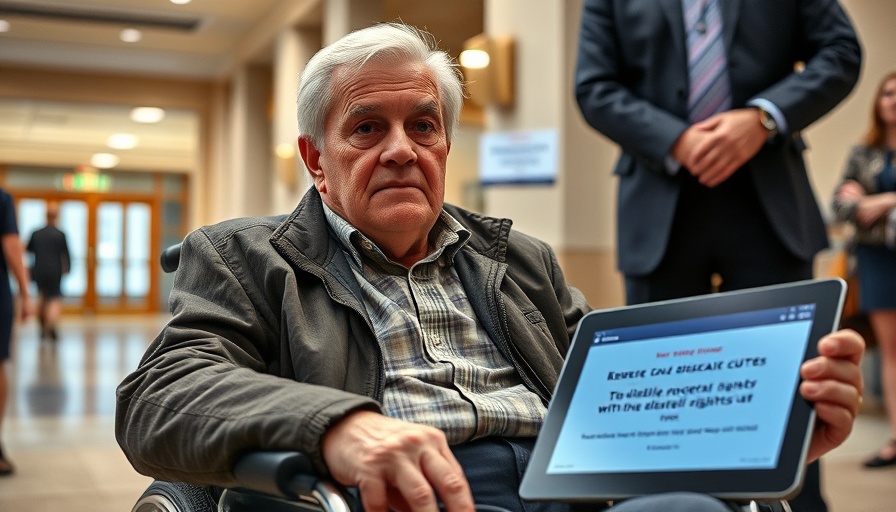
Protest for Medicaid Uninterrupted: A Need for Advocacy
On a typical Wednesday, a shocking scene unfolded at the U.S. Capitol. Elderly wheelchairs lined the hallways as poignant voices echoed in hushed defiance against proposed Medicaid cuts. This wasn't just another protest; it was a 'die-in' demonstration, an urgent story, one where the most vulnerable were at the forefront of the healthcare crisis in America.
What Fuelled the Protest: Understanding Medicaid's Role
With over 70 million low-income and disabled Americans relying on Medicaid, the stakes couldn't be higher. The protest reflected a grave concern: the proposed cuts from the Trump administration aimed at slashing Medicaid funding by nearly $793 billion over the next decade. Such changes could strip around 16 million essential services, including basic healthcare coverage, from those who need it most. The urgency behind their demonstration wasn't merely symbolic; it aimed to highlight that these cuts could literally take lives.
The Impact of Healthcare Policies on the Vulnerable
Statements from key figures, like Alaska Senator Lisa Murkowski, clarified that cutting funds where the most vulnerable citizens suffer isn’t the right approach. Many elderly individuals depend on Medicaid for maintaining not only their health but their very dignity. "These cuts harm beneficiaries," she expressed, resonating with the sentiments of thousands who depend on these programs. Understanding this political landscape urges us to recognize the critical need for healthcare accessibility.
Engaging in the Fight for Health Rights
The zip-tied imagery of elderly individuals in wheelchairs has reignited conversations about the importance of advocating for health rights, especially for marginalized communities. The current healthcare system, often criticized for its inequities, reminds us that every voice matters. Protests like these serve to amplify concerns that should never go unheard.
Understanding the Broader Context: A Shift in Public Sentiment
Interestingly, the ways in which citizens are expressing their dissent reflect broader societal shifts towards accountability and transparency. With healthcare becoming a central theme for voters, the energy surrounding approaches to social welfare and financial support structures continues to evolve. It raises the question: How can we expect policymakers to foster healthy environments if we allow their decisions to overshadow the needs of their constituents?
The Ripple Effect: Political Engagement Matters
As news spreads about such protests, there is a grassroots push for change. More citizens are engaging in dialogue about policy reform, healthcare access, and the overall ethics of government responsibility. Now, it’s important for Americans to contemplate their roles within this dynamic. Advocating for positive change is not merely the responsibility of those directly affected by these laws but also all community members.
The Future: Where to From Here?
With continued unrest and the potential ramifications of proposed Medicaid cuts, the road ahead calls for consistent pressure on elected officials to advocate for justice in healthcare policy. Each conversation we have about healthcare can ripple into broader advocacy, metamorphosing passive concern into actionable demands for our vulnerable populations.
The outrage at the Capitol painting a picture of seniors in zip ties stands as a stark reminder. It is essential now more than ever to hold our leaders accountable and work towards a healthcare model that provides for the most vulnerable among us.
Educate, Advocate, and Engage
In an age where information spreads at lightning speed, staying informed is crucial. Engage with your community, educate yourself about healthcare policies, and advocate for those whose voices are often marginalized. Together, we can push for reforms that ensure everyone has access to the healthcare they deserve.
 Add Row
Add Row  Add
Add 




Write A Comment